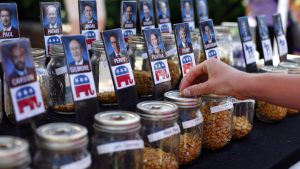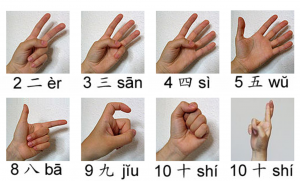 Like smartphones teach us to be dumb – to not know things, to not be able to find our way except by using the device – we are also learning how to forget the past. Or how to remember it inaccurately, disconnected from the forks in the road where our path darkened and we lost something irretrievable, something we did not make nor deserve but that came from us and birthed us, was us, the best and the worst, that pushed us in the right direction because we were scared to go on our own until we learned we could pull ourselves there if we could just join enough hands.
Like smartphones teach us to be dumb – to not know things, to not be able to find our way except by using the device – we are also learning how to forget the past. Or how to remember it inaccurately, disconnected from the forks in the road where our path darkened and we lost something irretrievable, something we did not make nor deserve but that came from us and birthed us, was us, the best and the worst, that pushed us in the right direction because we were scared to go on our own until we learned we could pull ourselves there if we could just join enough hands.
April 4, 1968, the Lorraine Motel, Memphis, TN, the alternately riotous and trippy sixties, the whole twentieth century, came crashing to a sudden end.
Now, 50 years into the 21st we wonder how long it’s going to last. This should not be our mindset; it wasn’t his. Is there an ideal that’s not an ideology? Is there optimism greater than hope?
Can we contemplate the breadth of shared possibility? How much justice will the market allow? The answers are not in your phone.
That’s Not Who They Are
 The inestimable Eschaton:
The inestimable Eschaton:
If We Pretend Those Bookish Conservatives on NPR are The Party
I suppose this is a proved fucking right kind of post, but there’s value in everyone else finally having to acknowledge it, if for only a few weeks or so. We’ve had decades of Very Serious Pundits ignoring both the words and deeds of the Republican party, and completely ignoring the words of Republican voters, in order to ignore the racism, misogyny, homophobia, and xenophobia that is a huge motivator for many of those voters and the people they elect. Only silly internet commenters (mostly) ever saw, or at least admitted to seeing, this reality, and got painted as irrational extreme partisans as a reward. I’m not happy about being right, but I am happy about some other people finally having to notice, or to stop pretending to not notice.We didn’t point out the racism so that our team, Team D, could win the match, we pointed it out because it’s there and it’s repugnant. I’m not even sure that pointing it out helps Team D win the match.
Having been a guest on and had projects promoted by pubic radio, and of course plenty steeped in my own public television-ness, I don’t want to seem disingenuous or an ingrate. But the nice people that represent Republicans in these media are not the ones in the party, in office or that go to the polls. You could even make the case that some of most pleasant-seeming ones are among their nastiest partisans. At any rate, what Atrios said.
A Climate Change is here
 If a climate changes and there’s not news about it, is a climate really changing?
If a climate changes and there’s not news about it, is a climate really changing?
2015 was a banner year for climate news. February, June, October, November, and December were each their respective hottest months on record, and 2015 shattered the record for hottest year. The pope delivered a climate encyclical. Investigative journalists at Inside Climate News discovered that Exxon knew about the dangers of human-caused global warming while it funded a climate misinformation campaign, and the New York attorney general launched an investigation into the company’s behavior. President Obama’s Clean Power Plan went into effect, and he rejected the Keystone XL pipeline. And most importantly, 195 countries agreed to cut carbon pollution as much as possible to stem global warming.
Despite all these critically important stories, as in the presidential debates, climate change was largely absent from US broadcast news. Climate coverage fell in 2015.
And even despite that, the answer of course is yes. And now scientists at the National Academy have confirmed that climate change and weather events can be connected. It’s as if now you know.. So what will you do?
Trivialized media
 Iranian blogger Hossein Derakhshan was sent to prison in 2008 for what he had written and advocated for online. When he was released in 2014, the internet had greatly changed:
Iranian blogger Hossein Derakhshan was sent to prison in 2008 for what he had written and advocated for online. When he was released in 2014, the internet had greatly changed:
There’s a story in the Qur’an that I thought about a lot during my first eight months in solitary confinement. In it, a group of persecuted Christians find refuge in a cave. They, and a dog they have with them, fall into a deep sleep and wake up under the impression that they have taken a nap: in fact, it’s 300 years later. One version of the story tells of how one of them goes out to buy food – and I can only imagine how hungry they must have been after 300 years – and discovers that his money is obsolete now, a museum item. That’s when he realises how long they have been absent.
The hyperlink was my currency six years ago. It represented the open, interconnected spirit of the world wide web – a vision that started with its inventor, Tim Berners-Lee. The hyperlink was a way to abandon centralisation – all the links, lines and hierarchies – and replace them with something more distributed, a system of nodes and networks. Since I got out of jail, though, I’ve realised how much the hyperlink has been devalued, almost made obsolete.
The piece is full of pull quotes, so read the whole thing. How little we notice just how much social media sites and our use of them has changed is a tribute to the ingenuity of engineers in Silicon Valley. They think about this stuff all the time, so we don’t have to! But the punchline is… we do have to. Derakshan’s perspective is a stark reminder of just how limited the use of social media has made our world – all beneath the aegis of connecting, sharing and informing. Frogs eventually do notice the water boiling. It’s crucial to set the irony aside, and reset the way online convenience has conditioned us already.
There’s a resolution. Happy 2016.
Image: Count on your hands in Chinese
Grey Lady Blushes, Again
 This will not get enough attention, but the source pollution problem at the New York Times, as Cholly Pierce so precisely put it, is a devious issue of national proportions:
This will not get enough attention, but the source pollution problem at the New York Times, as Cholly Pierce so precisely put it, is a devious issue of national proportions:
As is now obvious, somebody fed the paper bad information on San Bernardino murderess Tashfeen Malik’s social media habits. It was said that she was posting jihadist screeds on Facebook. The Times hyped the scoop by stating pretty clearly that the government—and the administration running it—slipped up. It was the inspiration for endless bloviating about how “political correctness is killing people” at Tuesday night’s Republican debate. Then comes FBI director James Comey to say that, no, there were no public Facebook posts that the government missed because there weren’t any at all.
More than a few people have noted that two of the three reporters who were fed this story also had their bylines on the notorious (and thoroughly debunked) piece about how the FBI had launched a “criminal inquiry” into Hillary Rodham Clinton’s alleged mishandling of classified materials in her e-mails.
Of the Clinton emails non-story, she wasn’t a target, it wasn’t a criminal referral and the emails weren’t classified. Other than that, great story! And the thing is, even pointing out this makes one sound like an HRC apologist, but nevermind.
The broader issue is, this is the problem if we’re only going to allow ourselves one national paper. The purchase of the major Las Vegas daily by its hometown casino magnate-cum-Republican kingmaker is further symptomatic of this self-replicating double-bind. The news as business, scandal as profit generator, reporters trained in the finer arts of the same and quaint rules of journalism secure under glass at the few J-schools left all equal an untenable republic. Remember: No Checks = No Balances.
News Profit
 I guess that could be prophet, but that’s a bit cheeky and I already miss the Amatriciana.
I guess that could be prophet, but that’s a bit cheeky and I already miss the Amatriciana.
The impetus of media properties to destroy their product marches on. Bottom-line news gathering, a strict misnomer, has become the new if nonsensical metric. Where can this be headed, other than the obvious? The Washington Monthly looks at the future of cross-subsidies:
In the past, when media companies funded labor-intensive journalism—foreign coverage, investigative projects, beat reporters who spend days tracking down leads—we believed this reportage was very valuable, even financially. Readers wanted to know, advertisers liked the prestige that high-quality reporting brought, and the publications made plenty of money.
Occasionally a wiseass would say something like, “The box scores are paying for the Baghdad bureau,” and we thought, Well, maybe that cross-subsidy exists, maybe it doesn’t—but the whole package seems to be doing just fine.
The Internet blew apart the package and eliminated the cross-subsidy. Now readers can go to ESPN and get box scores, and they can go to a separate site to get news. Sports scores no longer subsidize the foreign correspondent, and the comics no longer support the city hall reporter.
This has led us to confront the ugly reality of just how lousy—financially speaking—many of our journalistic projects were. Media managers can now produce a profit-and-loss statement not only for the news division as a whole, but for each reporter—and each piece of content.
That is a dangerous sort of urgency. Immediate returns on investment is just instant gratification by [barely] another name. It’s not a viable practice for anything.
More broadly, news can be boring. What we are convincing ourselves to be true is merely self-fulfilling, and an indication that any number of things could be. But once information and news reporting become just more ‘content’ that has to compete for eyeballs, then we really need to keep one eye on the till. But beyond certain levels of comfort, even paranoia is not a sufficient motivating force. The challenge to education is ignorance; the need to know, in order to inform our assent or rejection, only grows with the complexity shrouded in simple choices. Re-discovering self-interest can be brutal and unforgiving, but it’s the only thing that will liberate the buyer’s impulse.
Objectively Pro-Planet
Is there a consensus that this is the best planet? I mean, everyone talks about Mars and then there’s Jupiter. Saturn has those rings… but Earth? Do we care about it? Is it a question on familiarity? Are we bored with seven continents and the oceans maintaining certain levels, the tides and one moon? Asking for a friend.
The idea of a climate war should be the height of absurdity. But do we even register affront when news is reported this way? Maybe the media on other planets is also better.
The Boutique Age of journalism
Not my phrase. From a podcast between Neil DeGrasse Tyson and Miles O’Brien where they cast CNN as the Wal-Mart of journalism:
They then discussed the notion of “fair and balanced” reporting, with O’Brien recounting an occasion in which he brought his producers a story that 95 percent of the scientific community agreed on. “Is it fair in a story about climate change,” O’Brien said, “which is clearly what I’m talking about, to do this journalistic convention of equal time for both sides. This is a huge mistake for journalism.”
Tyson agreed, saying that the conventional solution means that you get “one person to represent that 5 percent, but then he gets 50 percent of your time.”
They went on to discuss the use of a Jessica Yellin hologram during the 2008 election, which is not that far off from my assertion that actors will begin to be portrayed by avatars, instead of humans, in the not to distant future.
Dystopia? How would we know?
Viewers like You
 I
I love loathe stories like this – not because of how they’re reported or who they’re about, but because they are unfortunately true:
Most Americans likely assume that the NewsHour (which, after all, is made with support from viewers like you) is actually owned and produced by PBS. It is an understandable assumption considering PBS’s own president declared that the NewsHour “is ours, and ours alone,” and further considering that the program receives millions of public dollars every year.
However, since 1994, the NewsHour has been produced and primarily owned by the for-profit colossus, Liberty Media. Liberty, which is run by conservative billionaire John Malone, owns the majority stake in MacNeil/Lehrer Productions – the entity that produces the journalistic content of the show. While other standalone public television projects are often produced by small independent production companies, the NewsHour stands out for being owned by a major for-profit media conglomerate headed by a politically active billionaire.
But now that ownership is about to change. According to an internal memo sent to staff by NewsHour’s founders and minority owners Robert MacNeil and Jim Lehrer, ownership of NewsHour will soon be transferred from Liberty Media to Washington, D.C.’s PBS member station, WETA.
I know – I have a public television project – there are all kinds of weird machines whirring within every sausage factory. But this split of an ostensible public good into partnerships with for-profit companies more resembles how/where democracy goes to die, if I can borrow from Pierce (And I can. Everyone can). Just look at the language MacNeil/Lehrer uses use to justify the need for an ownership change, proving you can tell yourself most anything.
And the point isn’t just the loss of a source once perhaps trusted that now should be applied only by trained cynical professionals. The realization, if that’s what it is, is that independent media outlets practically need to be hardcore believers to exist at all – despite the success of some, it’s a drag when the most important societal functions can only be left in the hands of the pure of heart and selfless of motive.
Image: 1970s PBS children’s series “The Electric Company.”
Diverse views on the news
What does it mean when everyone delivering the news and discussing it on the electronic television is the same hue? Same gender? Are we looking too deep when notice this? Are we ignoring the obvious when we don’t? Media Matters has some interesting charts on this, a grand total of zero of which will shock you:
White Guests Hosted Most Often On Cable News. Fox News had the largest proportion of white guests — 83 percent. African-Americans were the largest non-white group on all networks, representing 19 percent, 10 percent, and 5 percent of guests on MSNBC, Fox, and CNN, respectively.
As a completely white dude with a TV show, I have responsibility as part of the problem here. Why does this even matter? We have a guest this week (another white dude) who talks about a concept called cross-cultural competency – how comfortable we are interacting with people who are different from us. When it comes to integration in public schools, interested parties aka major corporations are coming down on the side of this sort of competency as a good in a society like ours. Now there are a zillions reasons why that is, but the subject itself sheds some new light on how we see ourselves – and others – and how that prism shapes our views about the world.
And if you set that aside for an instant and think about how you get the news and who decides what is news, you’ve got all kinds of reasons to be suspect of this heavily skewed arrangement. The situation in these charts breeds its reality in our society, one in which existing fears and biases must be constantly and always re-enforced, even before any ‘news’ stories get presented. When you contextualize everything first in how it fits the interest of one race or ethnic group, of course you’ll have trouble getting an accurate sense of anything. And we have plenty enough of that already.


